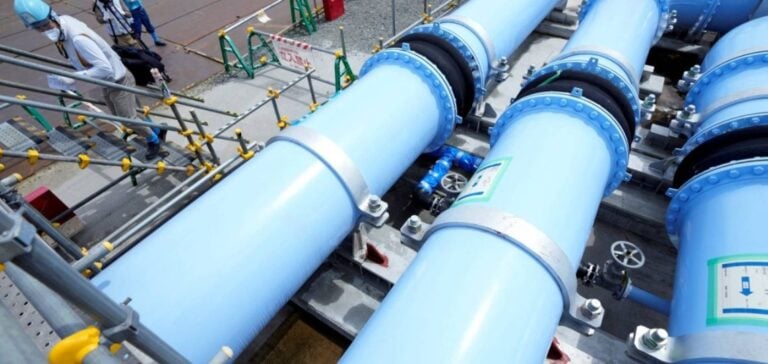On March 30, in Dalian, China, Chinese and Japanese experts met to discuss the discharge of treated water from the Fukushima nuclear power plant into the sea. This dialogue, initiated by Japanese Prime Minister Fumio Kishida and Chinese President Xi Jinping at a summit in San Francisco, aims to address the technical issues involved.
Wastewater discharge context
The discharge of wastewater from Fukushima into the Pacific Ocean began on August 24, provoking a diplomatic crisis between Tokyo and Beijing. China reacted by suspending imports of Japanese seafood, a move followed by Russia. Tokyo insists that the discharges are harmless, a position supported by the International Atomic Energy Agency (IAEA).
Reactions and implications
Japan plans to discharge over 1.3 million cubic meters of tritiated water into the Pacific Ocean, an amount equivalent to 540 Olympic-sized swimming pools, by the early 2050s. This decision exacerbated tensions between the two nations, already historically tense, prompting Prime Minister Kishida to ask China for an “objective judgment” on the safety of Japanese seafood products.
Impact on bilateral relations
This first technical dialogue between China and Japan on Fukushima water discharge could mark a turning point in their relations. Despite Beijing’s accusation that the sea is a “sewer” and the economic consequences for Japan, the meeting in Dalian opens the way to a more constructive exchange on sensitive environmental and technical issues.
The expert dialogue between China and Japan is a step towards addressing the technical and environmental concerns associated with the discharge of water from Fukushima. It reflects the efforts of both countries to communicate directly on crucial issues, despite diplomatic challenges and historical tensions.






















